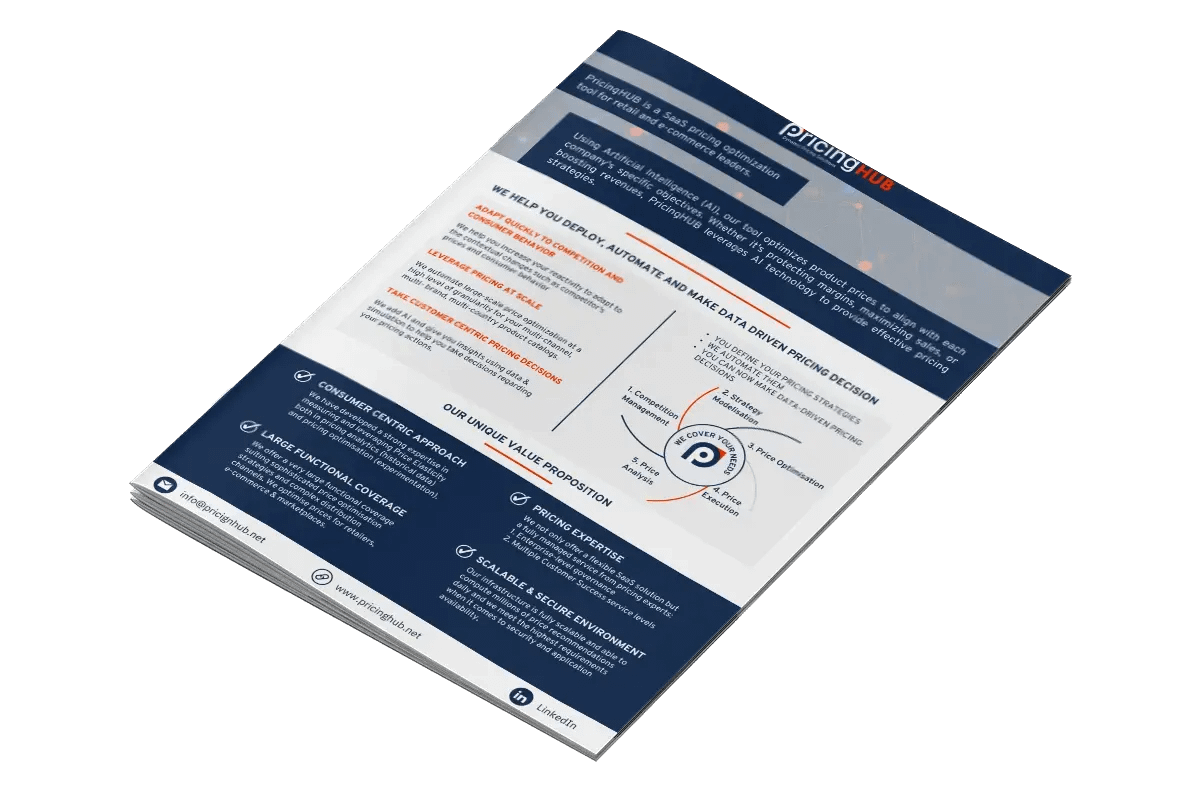Understanding and implementing the concept of psychological pricing is essential for maximizing sales and enhancing the perceived value of your products. As a pricing or category manager, grasping the nuances of this strategy can significantly influence consumer behavior and impact your company’s bottom line. If you’d like to find out more about all the important pricing concepts, we’ve devoted a section to exploring them in greater depth. You can find it here Psychological pricing exploits certain psychological perceptions that consumers have about pricing. It involves setting prices that have a psychological impact, making a product appear cheaper or more valuable. For instance, pricing an item at $199 instead of $200 can make a substantial difference in how the price is perceived, even though the actual difference is minimal. But most important, psychological price involves finding a balance between two critical points that affect consumer perception and their willingness to purchase. The first critical point is the lower price threshold. This is the price below which a product is perceived as cheap or of inferior quality. Pricing a product too low can lead to several negative consumer perceptions and behaviors: The second critical point is the upper price threshold. This is the price above which the product is perceived as too expensive relative to its perceived value. Pricing a product too high can also present challenges: The balance between these 2 prices is important as it aims to maximize both sales volume and profit margins by appealing to consumer psychology. In the corporate realm, psychological pricing is a strategic tool used to optimize product positioning and sales. It is not just about setting an attractive price point but also about aligning the price with the brand’s image and customer expectations. This approach helps in enhancing the sale index of products, as the price of your products will be defined based on your customer’s thinking process. Setting the right psychological price involves a deep understanding of your customer base and a methodical approach to pricing. In order to determine the psychological price, we have developed a consumer-centric approach that will help you understand your client behavior and set the good price accordingly. The first step in determining the psychological price is thorough customer analysis. Understanding who your customers are, their purchasing habits, what they value in products, and how price influences their buying decisions are crucial. This insight helps in tailoring prices that not only attract customers but also enhance their purchasing experience, reinforcing positive associations with the brand. The formula for calculating the psychological price often involves market research and competitive analysis. One effective technique is price testing, where different price points are tested in controlled environments to observe consumer reactions and preferences. These data points help in identifying price thresholds that can maximize both sales volume and profit margins. At PricingHUB, this is exactly what we do but in an automated way with our machine learning technology. Interpreting the data from your pricing strategies is as important as the data itself. This involves analyzing how changes in pricing affect the sale index, and how customers’ perceptions shift as a result. Effective interpretation can reveal whether a psychological pricing strategy is achieving its desired effect on consumer behavior and sales performance. Find out how our tool helps you manage your pricing strategies to maximise your sales and bottom line. Psychological pricing is a strategy where prices are set to influence a customer’s perception of a product’s value, rather than being based solely on its actual cost. In this strategy, the ‘psychological price’ is a specific price point designed to create a particular perception or reaction in the customer. Let’s explore the psychological pricing strategy in more detail. Common psychological pricing strategies include: These strategies, when used judiciously, help in boosting the psychological appeal of prices, thereby enhancing customer engagement and increasing sales. Nevertheless, there are several limitations to psychological pricing strategies: PricingHUB AI offers advanced tools to calculate the optimum psychological price by leveraging data analytics and machine learning. By inputting historical sales data, customer demographics, and competitive pricing, PricingHUB AI can provide precise pricing recommendations using experimentation. This ensures that the pricing strategy not only meets the psychological pricing criteria but is also optimized for current market conditions, maximizing the sale index effectively. Psychological pricing helps retailers influence customer perception and buying behavior, making prices feel more attractive and increasing sales without changing actual costs. It’s a powerful tool in pricing strategy to boost conversion rates and improve competitive positioning. Retailers use tactics such as charm pricing (ending prices with .99), bundling, and prestige pricing to appeal to customer psychology. These techniques help make prices seem lower, more attractive, or premium, driving increased sales and enhancing brand positioning. Common tactics include charm pricing (e.g., 9.99€), price anchoring (setting a high reference price), bundling complementary products, and prestige pricing (using rounded prices to signal luxury). Retailers combine these methods strategically to optimize sales and margins. Retailers track key performance indicators like sales volume, conversion rates, and average transaction value before and after applying psychological pricing tactics. Customer feedback and A/B testing also help refine pricing approaches for maximum impact. When used thoughtfully, psychological pricing can enhance customer satisfaction by aligning prices with perceived value and expectations. This fosters trust and repeat business, helping retailers build loyal customers who feel confident in their purchase decisions. Master the Psychological Price
What is a psychological price?
Psychological price in the corporate world
How to determine the psychological price of your products?
Customer analysis
Formula
Interpretation
Optimise your prices and maximise your business objectives and performance
Psychological price as part of psychological pricing
Strategies often used
How to calculate the optimum price with PricingHUB AI
Frequently Asked Questions (FAQs)


